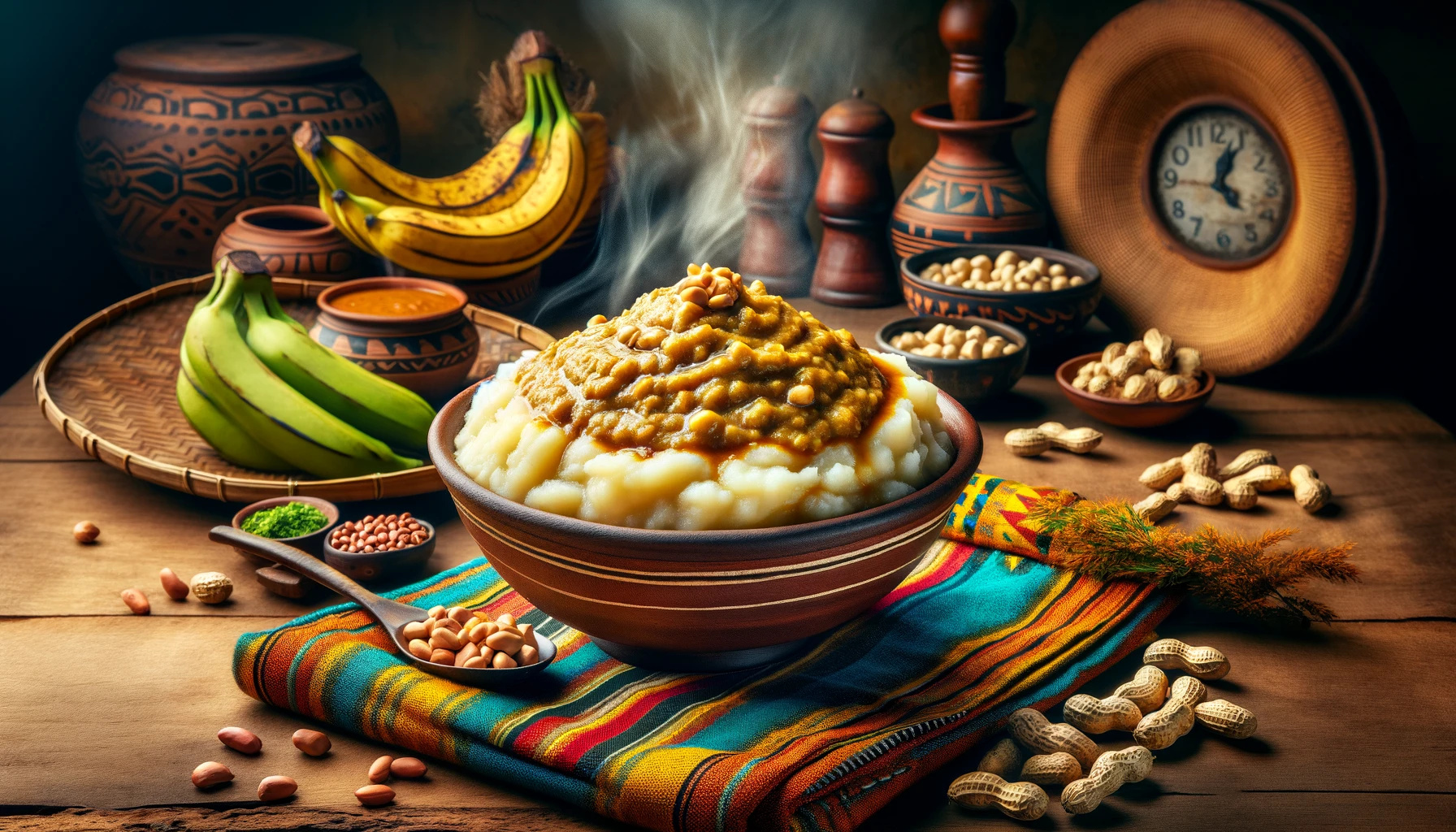🍌 What is Matoke?
Matoke refers to a specific variety of green cooking bananas (not sweet plantains) found in East Africa. Once steamed or boiled, they become tender and slightly starchy, making them ideal for mashing. Traditionally, Matoke is cooked in banana leaves over firewood — a technique still practiced in rural kitchens.
🥜 Why Pair Matoke with Groundnut Sauce?
The addition of groundnut sauce (a thick peanut-based stew) gives Matoke a creamy, savory boost, turning it into a full, balanced meal. Groundnuts are a staple protein source in East Africa, and when simmered into a sauce with onions, tomatoes, and spices, the flavor is simply irresistible.
🛒 Ingredients for Matoke and Groundnut Sauce
For the Matoke:
- 8–10 green cooking bananas (peeled and halved)
- 1 tablespoon lemon juice (to prevent darkening)
- ½ teaspoon salt
- 1½ cups water
For the Groundnut Sauce:
- 1 cup raw or roasted peanuts (ground or blended into a smooth paste)
- 1 medium onion, finely chopped
- 2 medium tomatoes, chopped
- 1–2 cloves garlic, minced
- 1 tablespoon vegetable oil
- 1 teaspoon paprika or curry powder
- Salt to taste
- 2 cups water or broth
👩🏾🍳 How to Make Authentic Matoke with Groundnut Sauce
Step 1: Steam and Mash the Matoke
- Peel green bananas and place them in a pot with lemon juice, salt, and water.
- Cover tightly and steam/boil on low heat for 30–40 minutes until soft.
- Mash the bananas with a wooden spoon or pestle until smooth and thick.
Step 2: Prepare the Groundnut Sauce
- Heat oil in a pan. Sauté onions and garlic until fragrant.
- Add tomatoes and cook until soft.
- Stir in groundnut paste and cook for 2–3 minutes.
- Slowly add water or broth, stirring constantly until smooth.
- Season with salt and paprika or curry powder.
- Simmer for 10–15 minutes until the sauce thickens.
Step 3: Plate and Serve
Scoop mashed Matoke onto a plate or bowl. Pour groundnut sauce generously over the top or on the side. Garnish with fresh herbs or chopped peanuts if desired.
💡 Pro Tips for Perfect Matoke
- Use true cooking bananas, not ripe yellow ones or sweet plantains.
- You can substitute natural peanut butter if you don’t have raw peanuts.
- Add a bit of smoked paprika or chili for heat and depth.
- For authenticity, serve in a clay bowl or with banana leaf presentation.
🌍 Cultural Significance
Matoke is more than a meal — it’s a symbol of East African identity and hospitality. Served at weddings, family gatherings, and holidays, this dish is a culinary comfort blanket that spans generations.
In Ugandan households, Matoke is often eaten with the hands and shared from a common platter — a tradition that emphasizes unity and togetherness.


